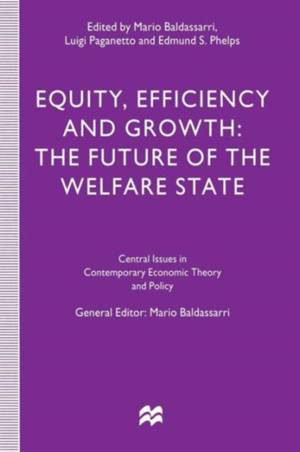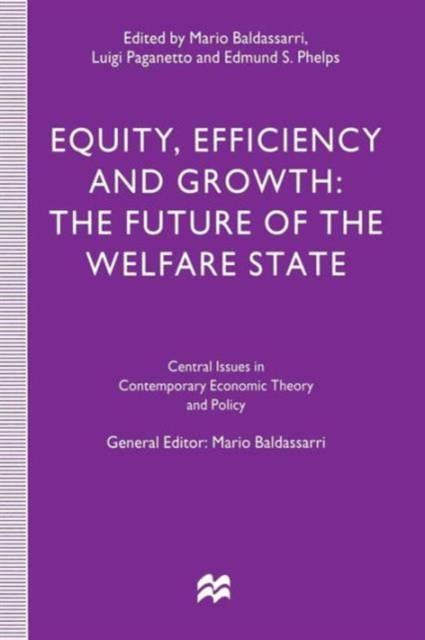
Je cadeautjes zeker op tijd in huis hebben voor de feestdagen? Kom langs in onze winkels en vind het perfecte geschenk!
- Afhalen na 1 uur in een winkel met voorraad
- Gratis thuislevering in België vanaf € 30
- Ruim aanbod met 7 miljoen producten
Je cadeautjes zeker op tijd in huis hebben voor de feestdagen? Kom langs in onze winkels en vind het perfecte geschenk!
- Afhalen na 1 uur in een winkel met voorraad
- Gratis thuislevering in België vanaf € 30
- Ruim aanbod met 7 miljoen producten
Zoeken
Equity, Efficiency and Growth
The Future of the Welfare State
€ 259,45
+ 518 punten
Omschrijving
In the post-war period, spending on social security, health and education has grown continuously in the leading industrialized countries. The considerable size of this spending as a percentage of GDP together with the ageing population raise doubts on the sustainability of welfare spending. These doubts have been accompanied in recent years by an increasing awareness of the allocational inefficiencies and the distributive inequalities caused by the provision of some social services. The welfare state should therefore be reconstructed not only through readjustment of the social security system but also a change in unemployment benefits and the taxation of workers to avoid the perverse spiral that may be produced in the future by cuts in welfare benefits, growing unemployment and the need to further reduce the social security services.
Specificaties
Betrokkenen
- Uitgeverij:
Inhoud
- Aantal bladzijden:
- 426
- Taal:
- Engels
- Reeks:
Eigenschappen
- Productcode (EAN):
- 9781349246519
- Verschijningsdatum:
- 1/01/1996
- Uitvoering:
- Paperback
- Formaat:
- Trade paperback (VS)
- Afmetingen:
- 156 mm x 234 mm
- Gewicht:
- 607 g

Alleen bij Standaard Boekhandel
+ 518 punten op je klantenkaart van Standaard Boekhandel
Beoordelingen
We publiceren alleen reviews die voldoen aan de voorwaarden voor reviews. Bekijk onze voorwaarden voor reviews.








